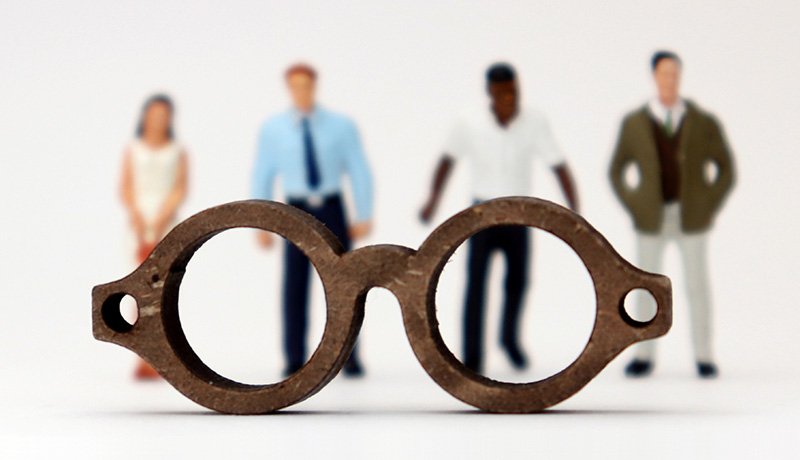Coach's VIEW is a business column authored by executive coaches in COACH A, aimed at providing valuable insights and effective approaches for leveraging coaching to foster organizational and leadership development. The column draws on the latest coaching trends and data, as well as insights from notable global publications on coaching.
Are you Judging Only by What you See?

December 14, 2020

Since the outbreak of COVID-19 in Wuhan, China, at the end of last year, about 24 million people have been confirmed to be infected by COVID-19 in 196 countries and regions so far, and the spread of infection has not yet been halted.
In Shanghai, where I am based, there have been a total of 342 infections, with no current cases (as of August 27, 2020: excluding imported cases from overseas). Many people have questioned this information, but having lived here since the outbreak of the COVID 19, I do not believe it to be a lie. I am certain that we have succeeded in containing the disease.
Among expatriates, the reasons for the success of containment are often discussed. While there is no doubt that the government's measures have been very successful, most people think that the main reason for the success is that each citizen was able to protect himself or herself through a strict voluntary quarantine. However, there is a wide range of opinions on the reasons why "every single citizen protected himself or herself through voluntary quarantine".
There are Many Interpretations, but there is One Thing to Believe
Some of the opinions sound positive, such as
"I was very cooperative with the government."
"I was very conscious of protecting myself."
Some of the opinions sound negative, such as
"I was afraid of being punished."
"I was unusually timid about an invisible virus."
I do not know which one is correct, or rather, they may all be correct. Interestingly, despite the variety of interpretations, few people had more than one interpretation (perspective).
"Generally Speaking, they are Right. But Sometimes, they are Decisively Wrong"
There is a method of thinking in psychology called "heuristics," which is a method of thinking that uses intuition to quickly come up with an answer from empirical evidence.
Behavioral economist, Daniel Kahneman, who was awarded the Nobel Prize in Economics in 2002, says in his book that answers derived from empirical intuition are "generally correct, but sometimes decisively wrong" (*1). (*1) There is a limit to what any one person can experience, but we can sometimes get it "decisively wrong" because we believe it is all we have.
As for the aforementioned interpretation of the people' s actions that the people protected themselves through voluntary isolation, I suppose we are judging solely from what we ourselves have seen, and that is why there are so many different opinions.
People Differ on what they Feel Uneasy About
Speaking for myself, at the beginning of the spread of the COVID-19 outbreak, when I saw my Chinese subordinates coming to work wearing goggles, masks, raincoats, and plastic gloves, I felt that although we needed to be very careful, they were a little too afraid.
However, I was surprised to find out that each person's background was different from the others through regular face-to-face conversations. On the surface, they were behaving the same way, yet their reasons for doing so were completely different.
A single employee with access to a lot of online information at home is frightened regardless.
Employees with young children are worried about their financial future.
Employees with three generations living together are stressed about working in their homes.
I understand that they are not necessarily afraid of the virus itself, and that there are differences in their fears.
Knowing this, I was able to think flexibly about such things as subsequent work arrangements. If I had not had regular conversations with each person, I might have made a wrong decision, and if I had only listened to certain people, I might have been biased in my policies.
Bias is Hard to Notice
In the article, "Don't Let your Gut Instincts Fool you",in the January 2016 issue of the Harvard Business Review, the author warns that heuristics (i.e. intuition) can lead to biases (i.e. assumptions) and that if we don't understand this, we can get it "decisively wrong".
We are all subject to the influence of biases and other beliefs. Why do biases arise? It's because we rely too much on our intuition, or our logical thinking is incomplete, or both at the same time. (*2)
Even the smartest people have a bias in their judgments and choices. It is reckless to think that bias can be overcome purely by willpower. (*2)
Biases are often unconscious and it can be difficult to be aware of the assumptions we make.
The more senior you are in management, the more important decisions you have to make on tricky and difficult issues. Speed is often required, and you may have to rely on intuition or experience.
However, there is no "always", "definitely" or "inevitably".
If we can become aware of our unconsciously fixed perspectives, we can gain other perspectives and make more choices. This may be facilitated by a "dialogue with a coach".
How do you make decisions? What biases could be lurking there?
[Reference]
- "Fast and Slow: How is your will determined? ”The second volume (Hayakawa Shobo)
by Daniel Kahneman, translated by Akiko Murai - "How to Overcome 'Motivational Bias' Don't let your intuition fool you"
(Harvard Business Review, January 2016) Jack B. Sol, Catherine L. Milkman, John W. Payne (author), Yukari Takahashi (translation)
*Regardless of profit, non-profit or intranet, secondary use such as copying, diversion, selling etc. is prohibited without permission.
Language: Japanese
